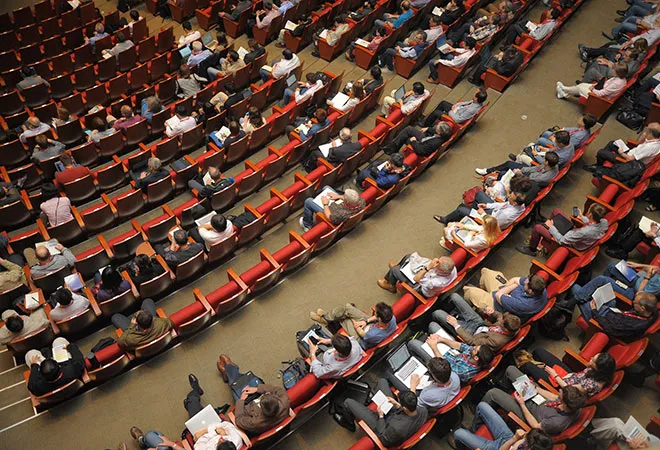
Regions have been gaining visibility in the global response to the coronavirus pandemic. Two factors are playing out in favour of region and regional institutions, namely, the governance crisis at the global level and the nature of the pandemic that respects no national borders — prompting nations to adopt regional response in the fight against the coronavirus.
Key regional organisations have demonstrated important convening power and appear to be positioning themselves as key partners and promoters of international institutions as well as building partners in their approach to regions/states. The regional approach to collectively combat the pandemic may have allowed global institutions such as the United Nations and its agencies to engage regional mechanisms that is playing the role of a connector and promoting coordinated multilateral response to combat the pandemic.
The role of regional organisations in supporting and collaborating with international institutions and agencies indicate increasing credibility of regional institutions in the global system.
At a time when the United States has been withdrawing support to the World Health Organisation (WHO), regional organisations have reaffirmed their commitment to
UN agencies including the WHO. The role of regional organisations in supporting and collaborating with international institutions and agencies indicate increasing credibility of regional institutions in the global system. This interdependence between global institutions and regional institutions may consolidate the regional role in global governance system in the post-COVID-19 world.
The interdependent relationship also demonstrates that regional institutions are important platforms in the delivery of public goods and play major role in contributing to the international aid system. For instance, the African Union (AU) and the Food and Agriculture Organisation of the United Nations (FAO) have worked together to
ensure food security in the African continent.
On the other hand, regions/subregions to have emerged as key targets for global/regional players in channelising medical assistance or “mask diplomacy” in the context of the coronavirus. Apart from the concern over the threat of cross-border transmission of the infectious virus, geopolitical interests or what Vice President of the European Commission Josep Borrell called “
the politics of generosity” also drives COVID-19 diplomacy among major players.
The interdependent relationship also demonstrates that regional institutions are important platforms in the delivery of public goods and play major role in contributing to the international aid system.
The
EU global response has focused on a few regions/subregions including the Middle East and North Africa, and the Pacific, Latin America and the Caribbean as well as fragile regions/subregions such as the
Sahel region of Africa in the EU’s calculus. Closely related to this is the interests and focus of major players towards their own neighborhoods, driven largely by security and strategic calculations. The Western Balkans and the immediate neighbors to the East and to the South have been
a key focus of the EU global response to the pandemic. China’s relief assistance in
Eastern and Central Europe has apparently created
a pushback from the EU.
India initiated a collective regional response among the SAARC member-states early on with a view to take leadership role in the region and has also scaled up what has to be called “
virtual diplomacy” and “
medical diplomacy” focusing largely towards regions/subregions in the subcontinent, the Indian Ocean region, Africa and the Pacific Islands states.
A few aspects of the recent regional response to the pandemic also seem to challenge the conventional understanding that regional institutions that have often been seen as models of regional institution-building have shown initial inaction and indecisiveness to act collectively including
the EU which has admitted of “
inadequate” response to the needs of member-states. Even so, the EU extended its support towards the need for strengthening global multilateral institutions.
The Southeast Asian regional bloc initially failed to come up with a collective food security and also ignored the impacts of the pandemic on migrant workers.
Similarly, the Association of Southeast Asian Nations (ASEAN) has come under criticism for not been able to put up a “
concerted ASEAN response” to fight the virus. The Southeast Asian regional bloc initially failed to come up with a collective
food security and also ignored the impacts of the pandemic on
migrant workers. In mid-April, ASEAN leaders reaffirmed their commitment to ensuring food security at
the special ASEAN plus three (China, Japan and South Korea) video conference summit on coronavirus disease, though that needs to be to translated on the ground.
On the other hand, regional institutions such as
the AU and
South Asian Association for Regional Cooperation (SAARC) that are often viewed as weak, lacking the habit of cooperation and under-resourced, emerged as key platforms for initiating collective response among member-states. Though, it must be pointed out that these regional bodies continue to suffer from long-standing political issues of trust deficit among member-states such as
India-Pakistan relations within the SAARC framework.
These regional dimensions of the global response to the coronavirus pandemic are present in different geographies and involve regional institutions both in developed and developing regions. Assessing the impact of the role of regional institutions on the pandemic will require more comparative study of regional bodies as well as how major players view and frame their approach towards regions/subregion. Even so, it may not be incorrect to suggests that the factors driving the regional dimensions in recent developments are likely to shape the emerging global governance system.
The views expressed above belong to the author(s). ORF research and analyses now available on Telegram! Click here to access our curated content — blogs, longforms and interviews.
 Regions have been gaining visibility in the global response to the coronavirus pandemic. Two factors are playing out in favour of region and regional institutions, namely, the governance crisis at the global level and the nature of the pandemic that respects no national borders — prompting nations to adopt regional response in the fight against the coronavirus.
Key regional organisations have demonstrated important convening power and appear to be positioning themselves as key partners and promoters of international institutions as well as building partners in their approach to regions/states. The regional approach to collectively combat the pandemic may have allowed global institutions such as the United Nations and its agencies to engage regional mechanisms that is playing the role of a connector and promoting coordinated multilateral response to combat the pandemic.
Regions have been gaining visibility in the global response to the coronavirus pandemic. Two factors are playing out in favour of region and regional institutions, namely, the governance crisis at the global level and the nature of the pandemic that respects no national borders — prompting nations to adopt regional response in the fight against the coronavirus.
Key regional organisations have demonstrated important convening power and appear to be positioning themselves as key partners and promoters of international institutions as well as building partners in their approach to regions/states. The regional approach to collectively combat the pandemic may have allowed global institutions such as the United Nations and its agencies to engage regional mechanisms that is playing the role of a connector and promoting coordinated multilateral response to combat the pandemic.
